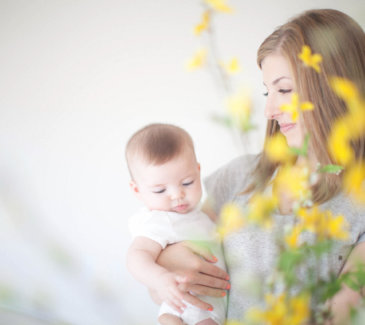There’s a lot we need to teach our kids to be careful about, but, if we aren’t careful what we say, we might be teaching our kids to worry. And according to Matthew 6, if we teach our kids to worry, we are teaching them to disobey a command. When Jesus said “do not worry,” he literally meant “ever.” My first thought upon learning that lesson was, “Jesus didn’t have any kids!”
How do we raise kids without worry?
It was a big moment in my life when I realized that Jesus didn’t just suggest or encourage us not to worry. Jesus was speaking a command to his disciples when he said, “Therefore I tell you, do not worry about your life, what you will eat or drink; or about your body, what you will wear. Is not life more than food, and the body more than clothes? Look at the birds of the air; they do not sow or reap or store away in barns, and yet your heavenly Father feeds them. Are you not much more valuable than they? Can any one of you by worrying add a single hour to your life?” (Matthew 6:25–27).
His command raises a few questions of our own:
- If our kids want to eat Pop-Tarts with ice cream for breakfast, no problem?
- If our kids come down the stairs wearing shorts in February, don’t worry about it?
- When our kids want to watch eight hours of cartoons instead of doing chores, should we just let them? If they spend money recklessly, that isn’t supposed to concern us?
- Was Jesus saying that God is going to take care of them no matter what they choose to do?
- And, if God would add an hour to our lives each time we worry, parents would probably celebrate our 189th birthdays. (But our kids probably wouldn’t worry about sending a card.)
If Jesus commanded his disciples with “do not worry,” that makes worry a sin. When we teach our kids to worry, we are teaching them to sin. So, how do we keep our kids healthy and safe, raise them to act acceptably, work hard, and behave, without teaching them to worry about what will happen if they don’t? Jesus gave us those answers too—for our kids and for us.
A sin is choosing to do something God has told us not to do. So, the first step is to see worry as a choice. Martin Luther said, “You cannot keep birds from flying over your head, but you can keep them from nesting in your hair.” Every time something feels like a worry, we have a choice. Jesus followed his command not to worry with a solution. He said, “But seek first the kingdom of God and his righteousness, and all these things will be added to you. Therefore do not be anxious about tomorrow, for tomorrow will be anxious for itself. Sufficient for the day is its own trouble” (Matthew 6:33–34 ESV).
What do those verses mean, practically, to our kids?
God holds the future, but Psalm 46:1 says, “God is our refuge and strength, a very present help in trouble” (ESV). God has not promised to help us with tomorrow’s worries because they don’t exist. Instead, we are to seek his help for whatever God wants us to be doing today.
So, when your child is worried about tomorrow’s test, you can teach them to ask God to help them remember what they are studying today. When your child is worried about a bully who might speak to them tomorrow, they can ask God what they should do today. When kids are worried about what people are thinking and saying about them, they can ask God what they should know is true right now.
When parents worry about their children’s futures, grades, dates, and ambitions, they can realize that God has a plan for their future. A parent’s job is to help their children know and trust God for today and help them make that same choice tomorrow.
We can teach our kids that worries are like those birds flying over our heads. Worry doesn’t become a sin until we choose to allow the worry to “nest” and control our thoughts and actions. The worry becomes our influence instead of God. Every worry is a choice, and Jesus said it was a sin to dwell on the worry instead of God’s answers for the worry.
I wish I could have back all the moments I spent worrying about things that might have happened but rarely did. I’m sorry I didn’t learn the deeper meaning of Jesus’ commandment sooner, while my kids were still at home. I would have made some better parenting decisions if I had.
There is a lot of data online about anxiety issues with kids. Those statistics are real, and parents should be aware of them but not worried by them. Jesus’ command about worry was truth when parents were sending their sons off to war, with no cell phones or computer emails. His advice was truth after 9/11, and it will still be true after the evening news tonight.
Jesus said, “Don’t worry about tomorrow.” Instead, we are to ask him what should be done today.
Does this really work? I have been teaching the Bible for a lot of years. I worried about a lot of things for most of those years. Learning that Jesus said “don’t” has made all the difference. I’d love to help others learn this sooner than I did. Worry is a choice, and God can provide us something better to consider.
I still worry sometimes but not nearly as often—and not for nearly as long. I try to seek God’s voice as quickly as possible. I pray your kids will be forever changed because you learned to think of Jesus’ words as a command and will choose to teach that truth to them.
Worry robs today of joy and tomorrow of possibilities. The birds are flying over our heads, but we can choose to send them elsewhere. No amount of worrying will help you arrive at God’s solution. Choose to seek God instead.
There are worry-free days ahead! Enjoy stepping into this great truth of God’s word for yourself and for your kids.



